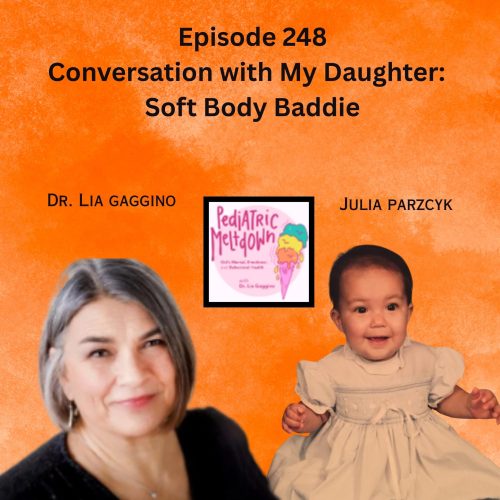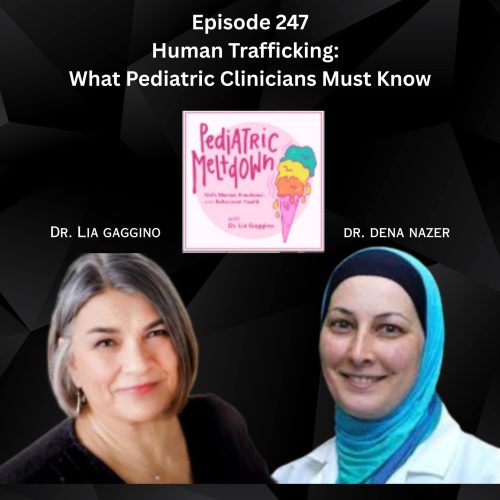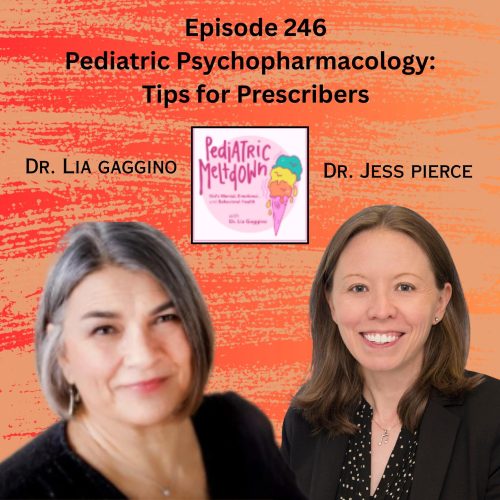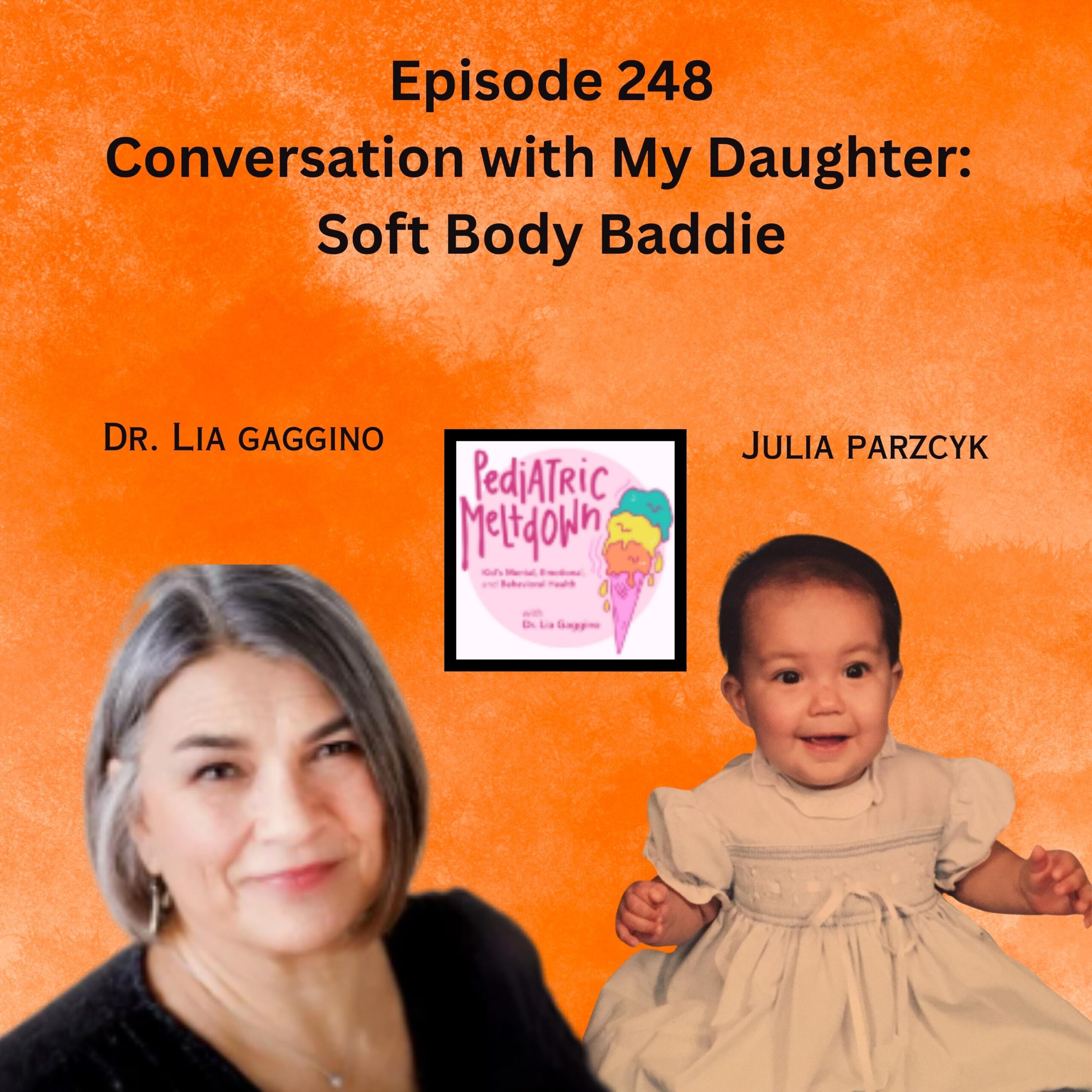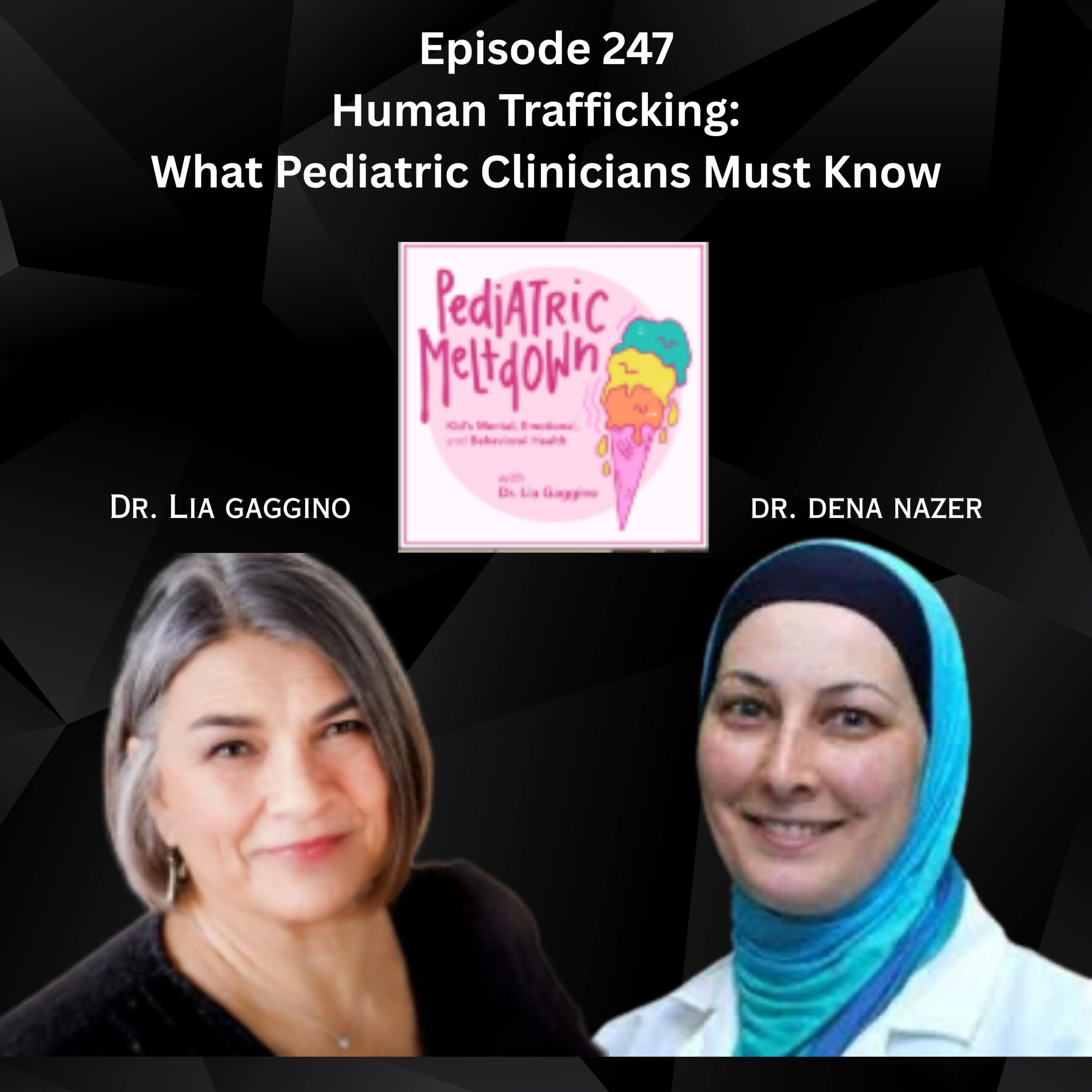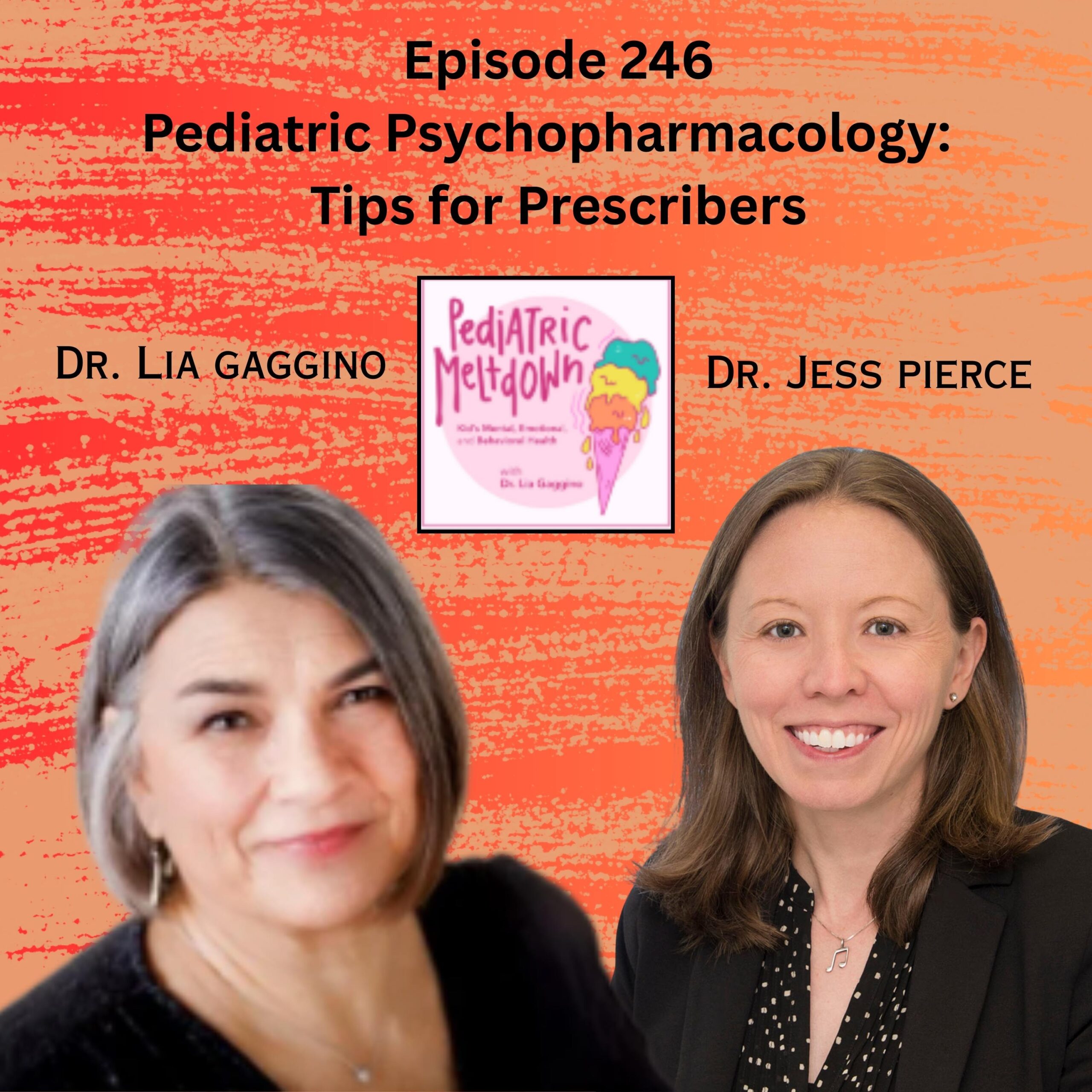On this episode of Pediatric Meltdown, I welcome Dr. Jenn Kuhn. We discuss everything from baby worries to how we as practitioners can help our patients as they enter parenthood. Being a parent is difficult, but it does bring some of the greatest rewards, so it’s ok to give yourself a break.
Dr. Jenn Kuhn is a pediatric psychologist working in integrated primary care at Nemours Alfred I duPont Hospital for Children in Wilmington, Delaware. She received her bachelor’s degree and master’s degree in psychology from Tulane University in New Orleans and received her Ph.D. in clinical psychology from Western Michigan University in Kalamazoo, Michigan in 2016. Dr. Kuhn and I crossed paths when she completed her pre-doctoral internship in Pediatric Psychology at the Munroe Meyer Institute at the University of Nebraska Medical Center in Omaha, Nebraska, and completed her postdoctoral fellowship in pediatric integrated behavioral health at Nemours Alfred I duPont Hospital for Children.
In her current role, she works in two pediatric primary care clinics. Her clinics serve patients aged 0 to 21. She is responsible for providing prevention-based services, psycho-educational services, consultation and education to medical trainees and staff, warm handoffs and consultation with patients, short-term therapy, and brief intervention assessments.
Her specific areas of interest include early intervention services, postpartum depression, and anxiety screening, postpartum wellness, management of disruptive behaviors, ADHD, assessments, anxiety, and sleep in providing clinical services. She supervises psychology residents, postdoctoral fellows, and provides behavioral health education to medical students and residents.
Clearly, Dr. Kuhn is very busy in pediatric clinics. Stay tuned for the interview and hopefully, you can see where this might fit into your practice.
[00:01] Dr. Jenn Kuhn Shares Her Story with Us
- Why Dr. Kuhn wanted to be a clinical psychologist
- Dr. Kuhn first heard of integrated behavioral health from a book and then in the middle of her graduate school career. Wanting to get involved in more preventative measures rather than reaching kids at their breaking point, she began to pursue integrated behavioral health
- How integrated behavioral health serves the patients Dr. Kuhn sees and why it should be regularly practiced
[13:23] New Babies and Postpartum Mothers
- On Dr. Kuhn’s newborn baby! And whether or not being a pediatric psychologist prepared her to be a mom
- Why OBGYNs should ask how mothers are doing mentally and administer the Edinburgh Postnatal Depression Scale (EPDS)
- Looking to patient’s partners to know them best and when to get help
- 40% of moms have some risk factor
[22:07] What Do Parents Need From Their Pediatrician?
- Guidance, education, reassurance, and validation
- With so much fear, shame, and bad advice surrounding motherhood, we as practitioners need to support our patients by giving them a nurturing environment in which they are comfortable to ask questions and not ashamed.
- Ask how your patients are doing: The asking is in and of itself therapeutic, because it helps kind of chase away shame that if I’m asking you, it must not be that bad, that you would share that something difficult happening
- Don’t worry if every moment of motherhood doesn’t feel magical
- Even if all you can do is provide some resources, and be there to listen, that helps immensely
[42:31] Closing Segment
- Wishing Dr. Jenn Kuhn well as she returns to work
- Final Takeaways:
- 1. Integrated behavioral health is the integration of mental health professionals in medical settings, working side by side
- 2. Parents are beginning to seek out integrated behavioral health clinicians
- 3. Being a psychology professional does not necessarily prepare you for motherhood
- 4. Should pediatric clinicians be asking moms about anxiety and depression? Her answer: Yes.
- 5. if you’re going to ask difficult questions, specifically screening for anxiety, depression, and suicidal ideation. Have a plan for what to do in a crisis and be glad that you were the one who intervened you could save a mom you could save a baby
- 6. Don’t forget about dads! 1 in 5 moms and 1 in 10 Dads experience perinatal mood and anxiety disorders
- 7. Parents, including professionals who are parents, want reassurance that they are good parents, and validating their feelings is really helpful for doing that
- 8. Sometimes moms need to hear things more than once
- 9. The first month is just hard and that’s okay
- 10. Being a parent is difficult, but it does bring some of the greatest rewards.
Tweetable Quotes:
“I noticed a lot of parents wanted some reassurance of, “Am I doing the right thing?” And some validation that their feelings are appropriate. If your feelings are your feelings, that’s okay to feel that way.” – Dr. Jenn Kuhn
“People get scared to ask because they’re like, what’s gonna come next? But I think it’s worse to not ask, because then, what’s next when no one’s asked them anything?” – Dr. Jenn Kuhn
“Being a parent is difficult, but it does bring some of the greatest rewards.” – Dr. Lia Gaggino
Resources Mentioned:
- Integrated Behavioral Health in Primary Care by Hunter and Goodie
- Cribsheet by Emily Oster
- Expecting Better by Emily Oster
- www.emilyoster.net
Instagrams mentioned:
- @takingcarababies
- @themompsychologist
- @postpartumstress
- @psychedmommy
Websites:
- www.kellymom.com
- www.healthychildren.org
Apps Recommended by Jenn:
- Pacify app – An online platform for lactation consultants
- Bump app – Used for the weekly pregnancy notifications but they also have awesome postpartum articles
If you’d like to connect with me, you can find me at LinkedIn, Facebook, and Twitter or email me at gagginol@yahoo.com. To learn more about me visit https://www.medicalbhs.com/
LOVE WHAT YOU HEARD? Leave us a 5-star review so we can continue to provide you with great content. Share this episode and help people know more about children’s health and well-being.



